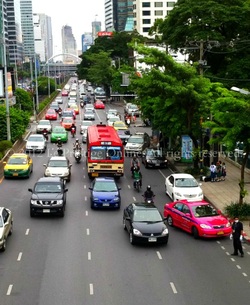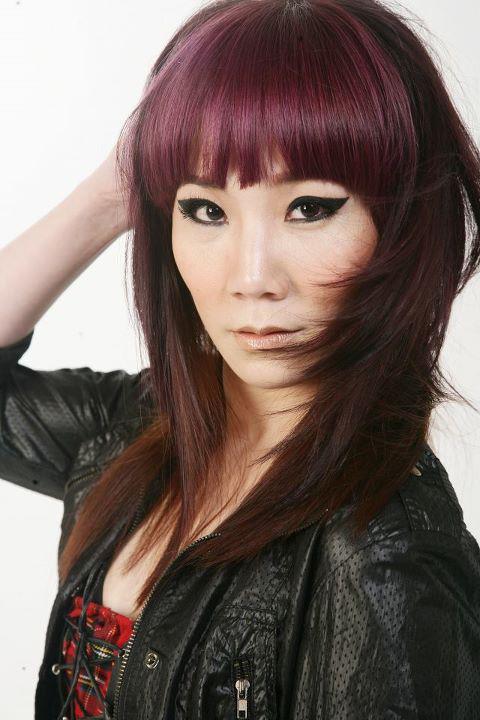By: Ogilvie Zavala
Associate Arts Editor
Associate Arts Editor

Photo Credit: JGZ
Bangkok - The Thai criminal justice system consists of multiple agencies that were created to facilitate the efficiency of the judicial system. However, due to limited interaction amongst the agencies, efficiency is compromised. With resurgence of political instability in Bangkok, some argue that police injustices are becoming more commonplace.
In Thailand, during the pre-trial and trial process of a crime, the judiciary branch remains inactive while the executive branch takes control of the case. The prosecutor cannot conduct criminal investigations and can only request that the police conduct an investigation. The police then have the option to neglect the prosecutor’s consultations. A prosecutor can initiate a criminal charge when an “inquiry” relating to the offense has been made. The offense can then be prosecuted if the police support the decision.
On several occasions, the police have exercised their power to conduct warrant-less arrests and searches. Many Thai citizens are concerned that the police’s control over the judiciary system is a threat to their freedom. According to Nay Nathapat, a local Bangkok resident of the Silom district, “The unlimited power the police has suppresses the rights of innocent Thai people.”
Numerous people in the Thai capital believe that with recent Red Shirt protesters, those in favor of the local people according to a spokesperson for the group, police investigations and criminalization of the innocent will continue.
In Thailand, during the pre-trial and trial process of a crime, the judiciary branch remains inactive while the executive branch takes control of the case. The prosecutor cannot conduct criminal investigations and can only request that the police conduct an investigation. The police then have the option to neglect the prosecutor’s consultations. A prosecutor can initiate a criminal charge when an “inquiry” relating to the offense has been made. The offense can then be prosecuted if the police support the decision.
On several occasions, the police have exercised their power to conduct warrant-less arrests and searches. Many Thai citizens are concerned that the police’s control over the judiciary system is a threat to their freedom. According to Nay Nathapat, a local Bangkok resident of the Silom district, “The unlimited power the police has suppresses the rights of innocent Thai people.”
Numerous people in the Thai capital believe that with recent Red Shirt protesters, those in favor of the local people according to a spokesperson for the group, police investigations and criminalization of the innocent will continue.

Former Prime Minister Thaksin Shinawatra spoke to a crowd in Bangkok via video link early this week, calling for justice but also for reconciliation in the still politically fractured country. Thaksin fled into exile after being ousted by a 2006 military coup, and was convicted of corruption in absentia.
"We have fought for too long," said Thaksin, dressed in a red shirt. He told the crowd that he was speaking from a location in Asia, but did not specify where.
"All the misunderstandings must cease. We have to stop blaming others. Let's think about our children and their future," Thaksin said.
The Red Shirt conflict is largely between the poor and rural masses, many of whom backed Thaksin, and supporters of Thailand's traditional power holders in the royal palace and the military. While police officers often politically side with Red Shirt protesters, they have a duty to protect the country.
Lailani Choontrakul, a noodle soup vendor in the Bang Rak district of downtown Bangkok, mentioned that the police aren't very sympathetic to civilian needs. "They come here, demand a free meal, and ask me where I stand politically", Choontrakul mentioned. "It's a bit frightening because these are the people who are supposed to protect us. They arrest fast, ask questions later. This isn't how things used to be."
"We have fought for too long," said Thaksin, dressed in a red shirt. He told the crowd that he was speaking from a location in Asia, but did not specify where.
"All the misunderstandings must cease. We have to stop blaming others. Let's think about our children and their future," Thaksin said.
The Red Shirt conflict is largely between the poor and rural masses, many of whom backed Thaksin, and supporters of Thailand's traditional power holders in the royal palace and the military. While police officers often politically side with Red Shirt protesters, they have a duty to protect the country.
Lailani Choontrakul, a noodle soup vendor in the Bang Rak district of downtown Bangkok, mentioned that the police aren't very sympathetic to civilian needs. "They come here, demand a free meal, and ask me where I stand politically", Choontrakul mentioned. "It's a bit frightening because these are the people who are supposed to protect us. They arrest fast, ask questions later. This isn't how things used to be."

 RSS Feed
RSS Feed




